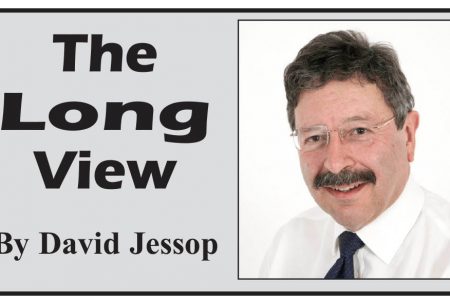
Drowning in promises
In a powerful speech at last month’s COP26 climate summit, Barbados’ Prime Minister, Mia Mottley, seized the day.

In a powerful speech at last month’s COP26 climate summit, Barbados’ Prime Minister, Mia Mottley, seized the day.
In mid-November, a little noticed virtual meeting took place. It considered in the round the security threats that the Caribbean will face in future.
It is no exaggeration to say that education has made the Caribbean what it is today.

Some years ago, the then Prime Minister of Barbados, the late Owen Arthur, told me that unless regional leaders could agree on how to achieve economic parity between CARICOM’s member states, a viable Caribbean Single Market and Economy (CSME) might not be attainable.

A few days ago, the President of Mexico, Andrés Manuel López Obrador, delivered a speech marking the anniversary of the birth of Simon Bolivar.

Today a younger generation of Caribbean women and men have begun to challenge many of the assumptions that exist in and beyond the region.
Can the Caribbean avoid being caught up in the accelerating east-west struggle for global influence?
In less than three months’ time, El Salvador intends becoming the first country in the world to make Bitcoin its official currency alongside the US Dollar.
It is not often that well-resourced and politically powerful companies such as ExxonMobil and Shell suffer historic defeats.
Just over a week ago, Argentina’s Health Minister, Carla Vizzotti, and her Cuban counterpart, Dr José Angel Portal, signed a letter of intent that may lead to the joint production in Argentina of some of the vaccines Cuba has developed against COVID-19.
Sometime in the next twelve months, when the pandemic is fully brought under control in North America and Europe, visitors will return to the Caribbean in significant numbers.
Will the decision by several US cruise lines to home port in the Caribbean this summer become a permanent fixture, or is it just a temporary work around?
The appointment of Dr Carla Barnett as the next Secretary General of CARICOM should be an inflection point; a moment when the institution, and more importantly its member states rise to the challenge of delivering the post-pandemic decisions that could propel the regional integration process into the 21st Century.
If the pandemic has demonstrated anything it is that much improved internet connectivity, reliability and security have become unavoidable priorities for the Caribbean.
Vaccine inequity has become a matter of deep global concern. The issue, the WHO’s Director-General, Tedros Adhanom Ghebreyesus, told a recent meeting of the UN’s Economic and Social Council (ECOSOC), is “the challenge of our time”.
Perhaps the most important aspect of the short statement issued in Washington after a first two-hour meeting last week between the new US Secretary of State, Antony Blinken, and his CARICOM counterparts was its emphasis on inclusivity.
Recently published visitor arrival figures indicate that Caribbean tourism has started down the long road to recovery.
Last month Britain published two significant post-Brexit policy documents setting out its future thinking on foreign policy, defence, security, and development.
There is an old saying that you wait ages for a London bus and then two (or even three) come along at once.
What global role should a post-imperial, post-Brexit Britain play? Can it reinvent itself in a manner that convinces a population increasingly divided by education, age, race, location, and inequality, let alone the wider world, that it can or should continue to try to punch above its weight?
The ePaper edition, on the Web & in stores for Android, iPhone & iPad.
Included free with your web subscription. Learn more.